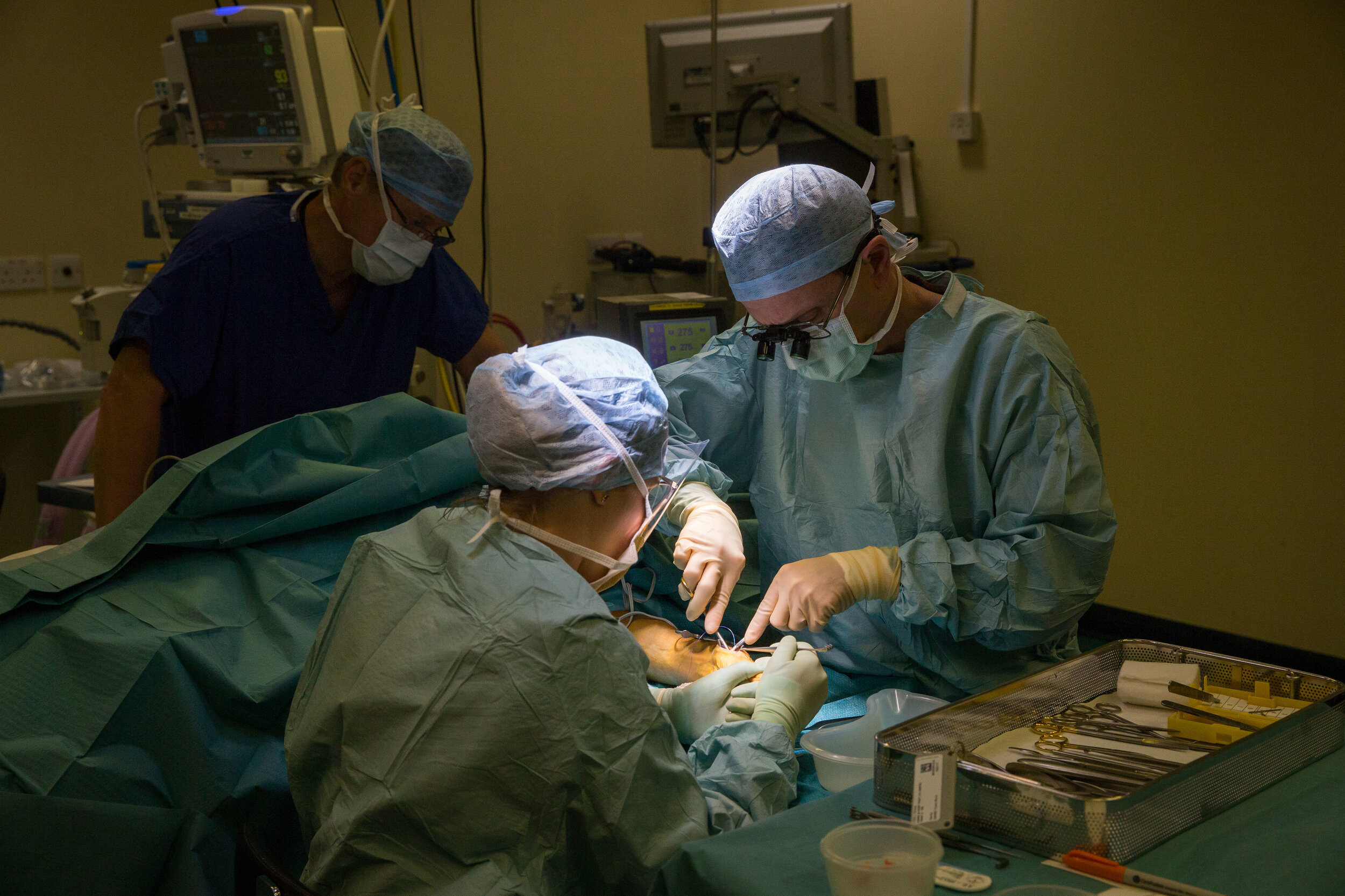
Carlos Heras-Palou, 53, performing hand surgery at Derby Nuffield Hospital. Mr Heras-Palou, an orthopaedic specialist surgeon, may have had his career saved by a new drug called 'Patisiran'. The rare disease, hereditary transthyretin-mediated amyloidosis (hATTR amyloidosis), progressed and destroyed the nerves in his hands, rendering them useless. However after an 18 month course of Patisiran the condition has halted and reversed.
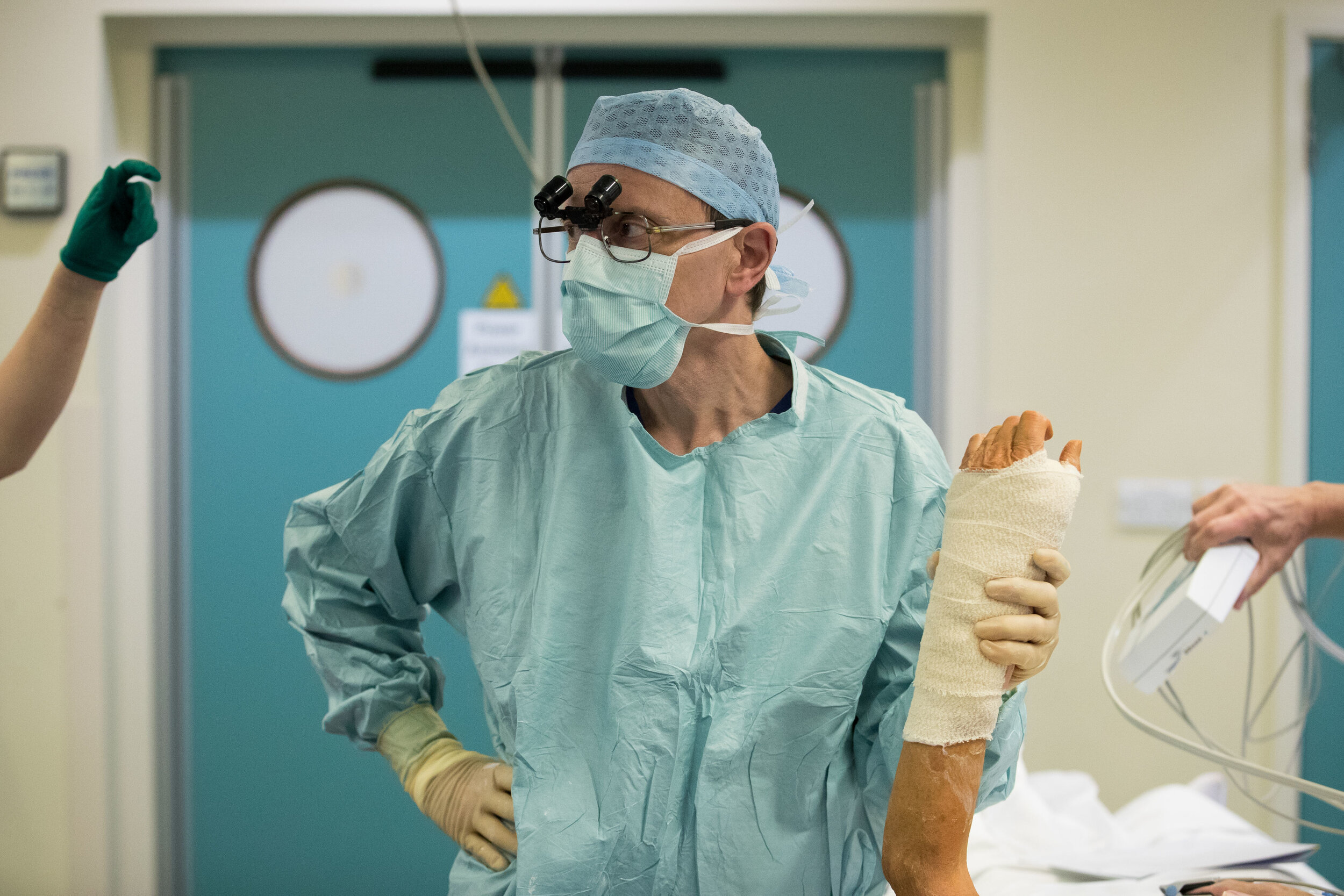
Carlos Heras-Palou, 53, performing hand surgery at Derby Nuffield Hospital. Mr Heras-Palou, an orthopaedic specialist surgeon, may have had his career saved by a new drug called 'Patisiran'. The rare disease, hereditary transthyretin-mediated amyloidosis (hATTR amyloidosis), progressed and destroyed the nerves in his hands, rendering them useless. However after an 18 month course of Patisiran the condition has halted and reversed.
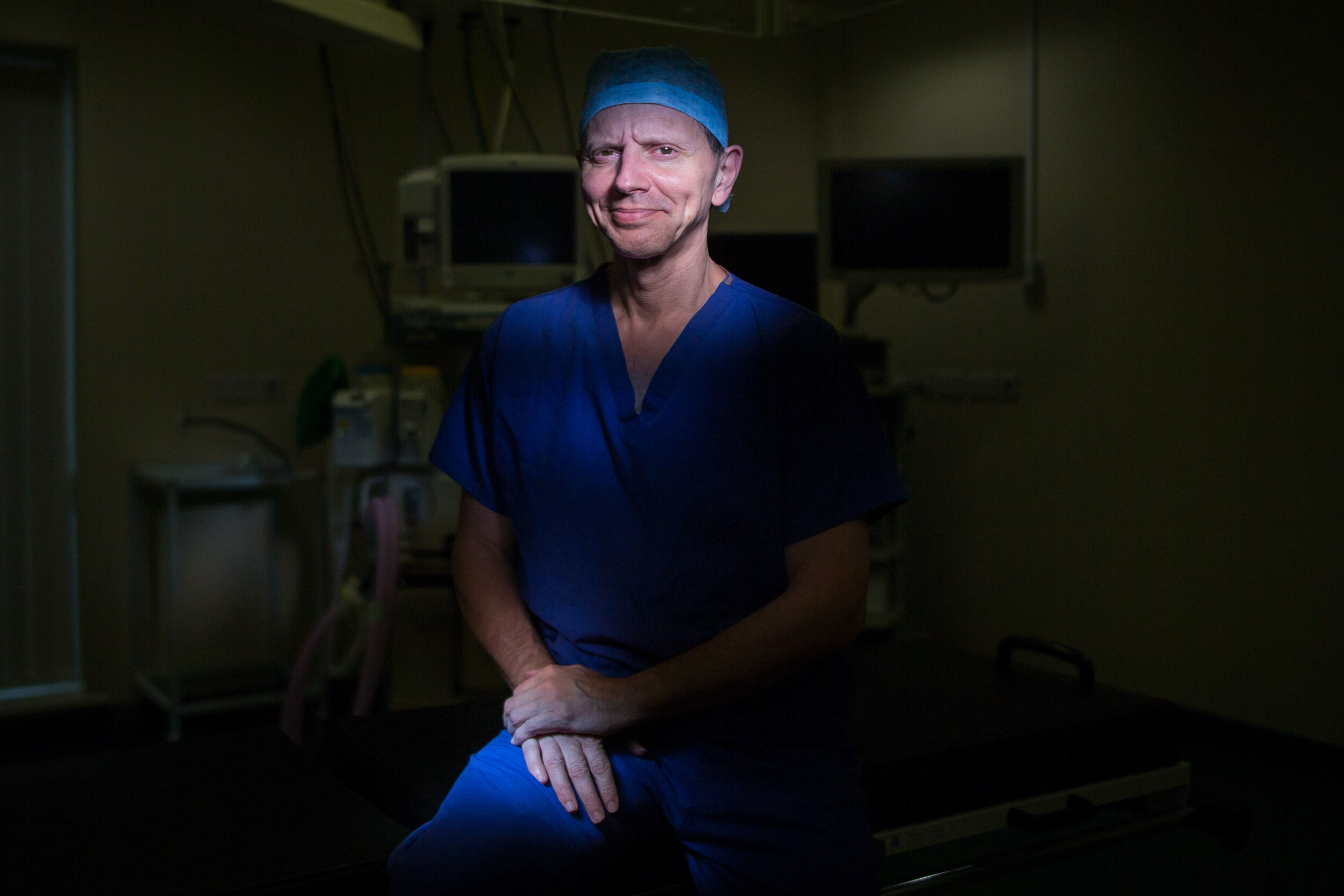
Carlos Heras-Palou, 53, performing hand surgery at Derby Nuffield Hospital. Mr Heras-Palou, an orthopaedic specialist surgeon, may have had his career saved by a new drug called 'Patisiran'. The rare disease, hereditary transthyretin-mediated amyloidosis (hATTR amyloidosis), progressed and destroyed the nerves in his hands, rendering them useless. However after an 18 month course of Patisiran the condition has halted and reversed.
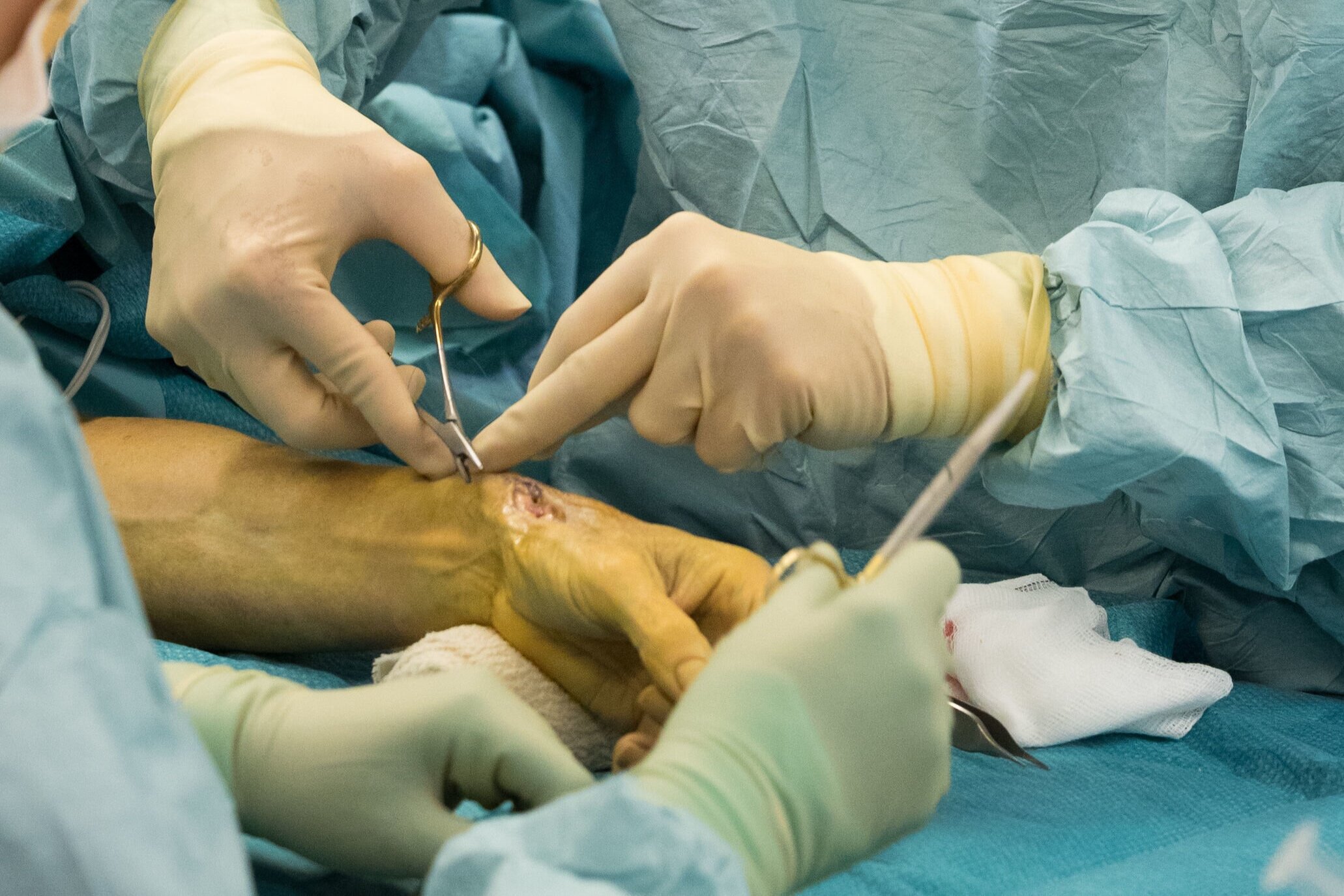
Carlos Heras-Palou, 53, performing hand surgery at Derby Nuffield Hospital. Mr Heras-Palou, an orthopaedic specialist surgeon, may have had his career saved by a new drug called 'Patisiran'. The rare disease, hereditary transthyretin-mediated amyloidosis (hATTR amyloidosis), progressed and destroyed the nerves in his hands, rendering them useless. However after an 18 month course of Patisiran the condition has halted and reversed.
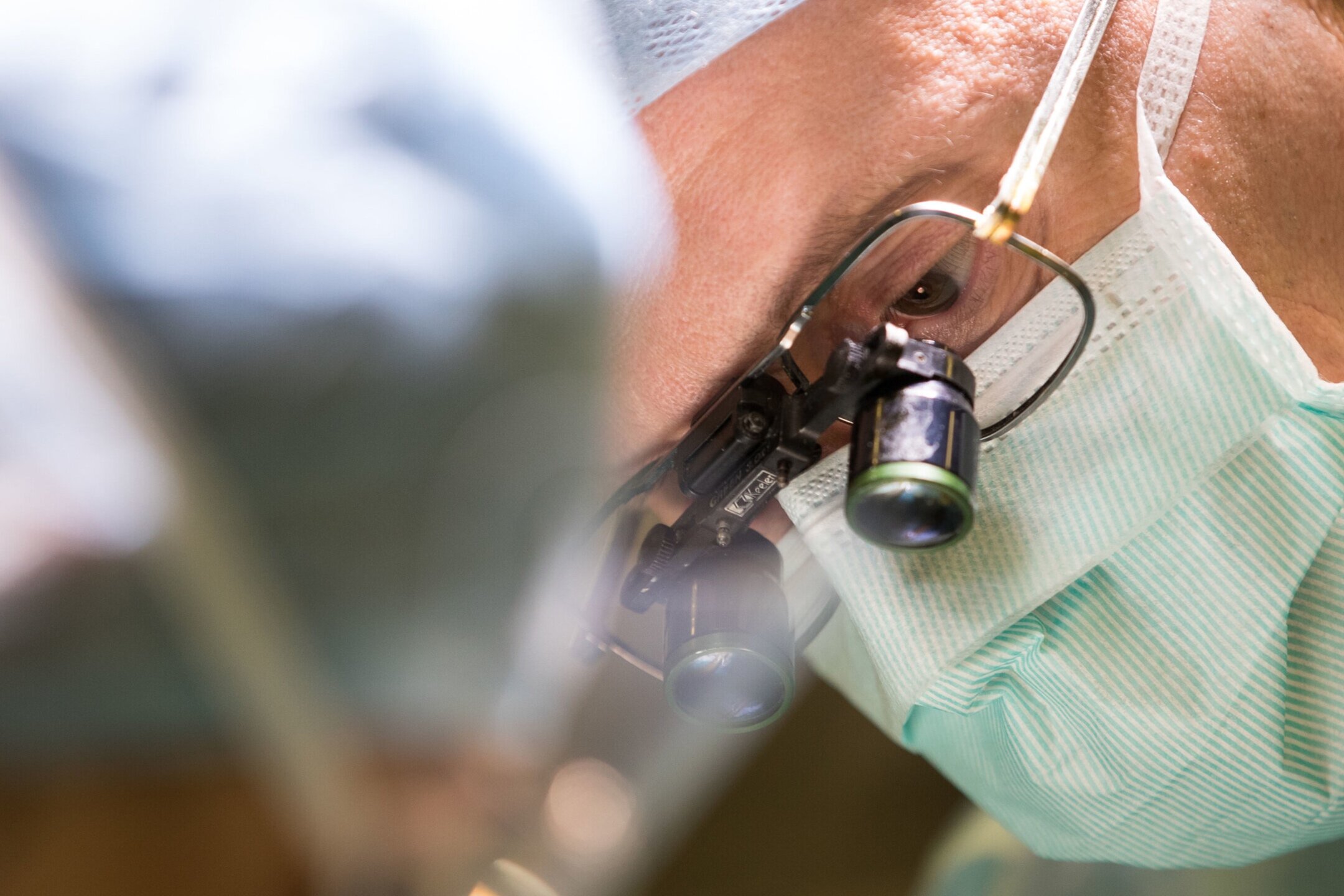
Carlos Heras-Palou, 53, performing hand surgery at Derby Nuffield Hospital. Mr Heras-Palou, an orthopaedic specialist surgeon, may have had his career saved by a new drug called 'Patisiran'. The rare disease, hereditary transthyretin-mediated amyloidosis (hATTR amyloidosis), progressed and destroyed the nerves in his hands, rendering them useless. However after an 18 month course of Patisiran the condition has halted and reversed.
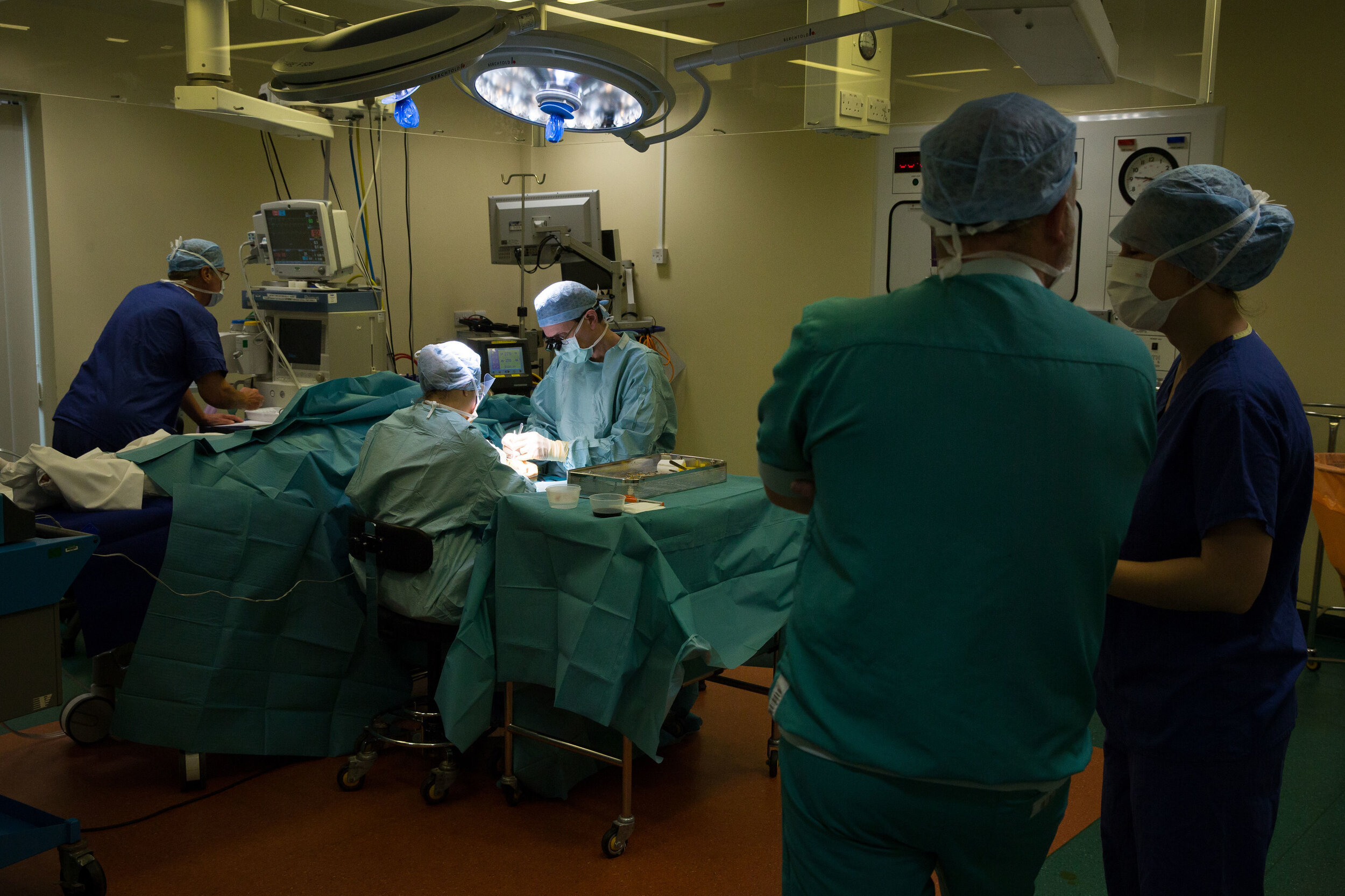
Carlos Heras-Palou, 53, performing hand surgery at Derby Nuffield Hospital. Mr Heras-Palou, an orthopaedic specialist surgeon, may have had his career saved by a new drug called 'Patisiran'. The rare disease, hereditary transthyretin-mediated amyloidosis (hATTR amyloidosis), progressed and destroyed the nerves in his hands, rendering them useless. However after an 18 month course of Patisiran the condition has halted and reversed.
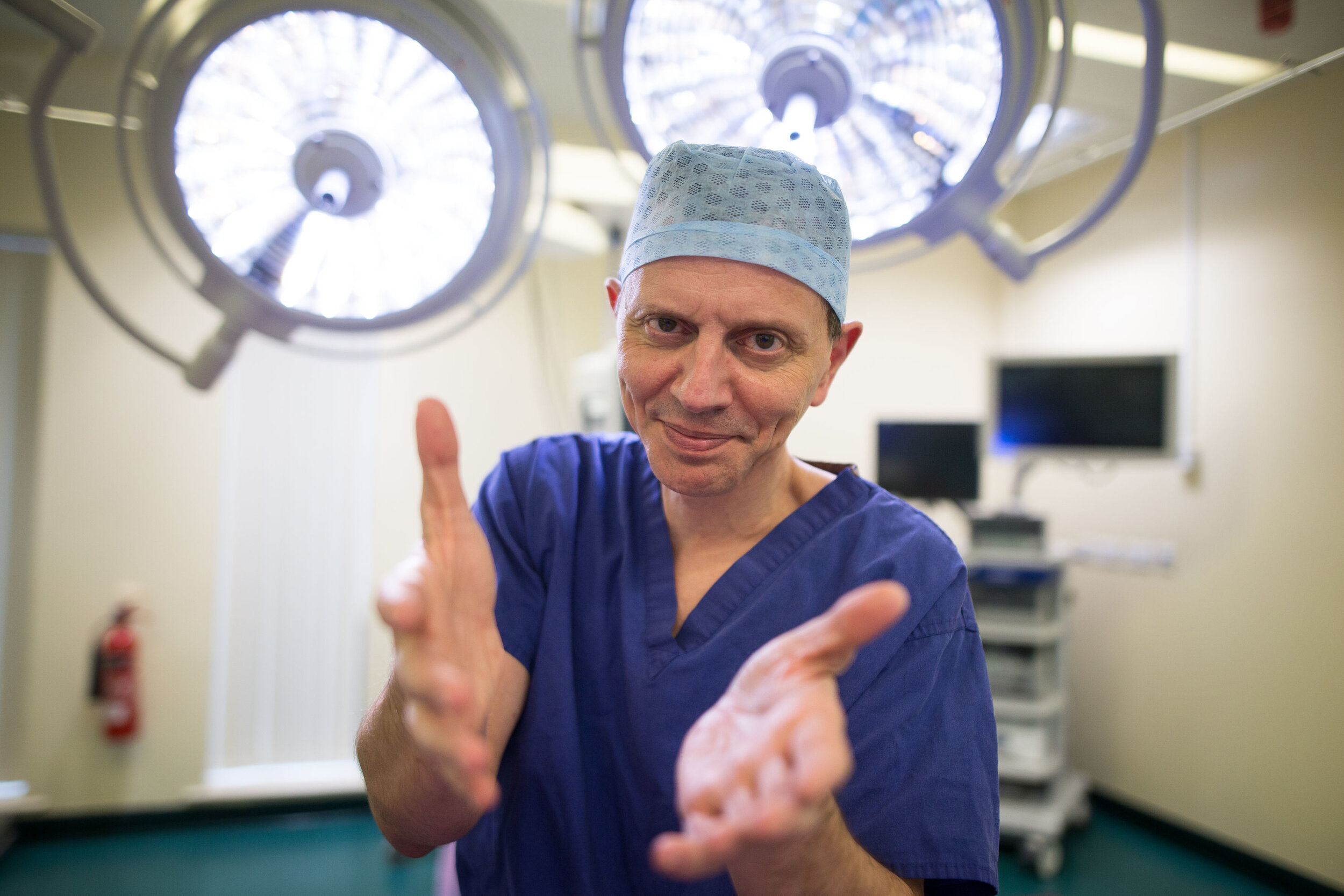
Carlos Heras-Palou, 53, performing hand surgery at Derby Nuffield Hospital. Mr Heras-Palou, an orthopaedic specialist surgeon, may have had his career saved by a new drug called 'Patisiran'. The rare disease, hereditary transthyretin-mediated amyloidosis (hATTR amyloidosis), progressed and destroyed the nerves in his hands, rendering them useless. However after an 18 month course of Patisiran the condition has halted and reversed.
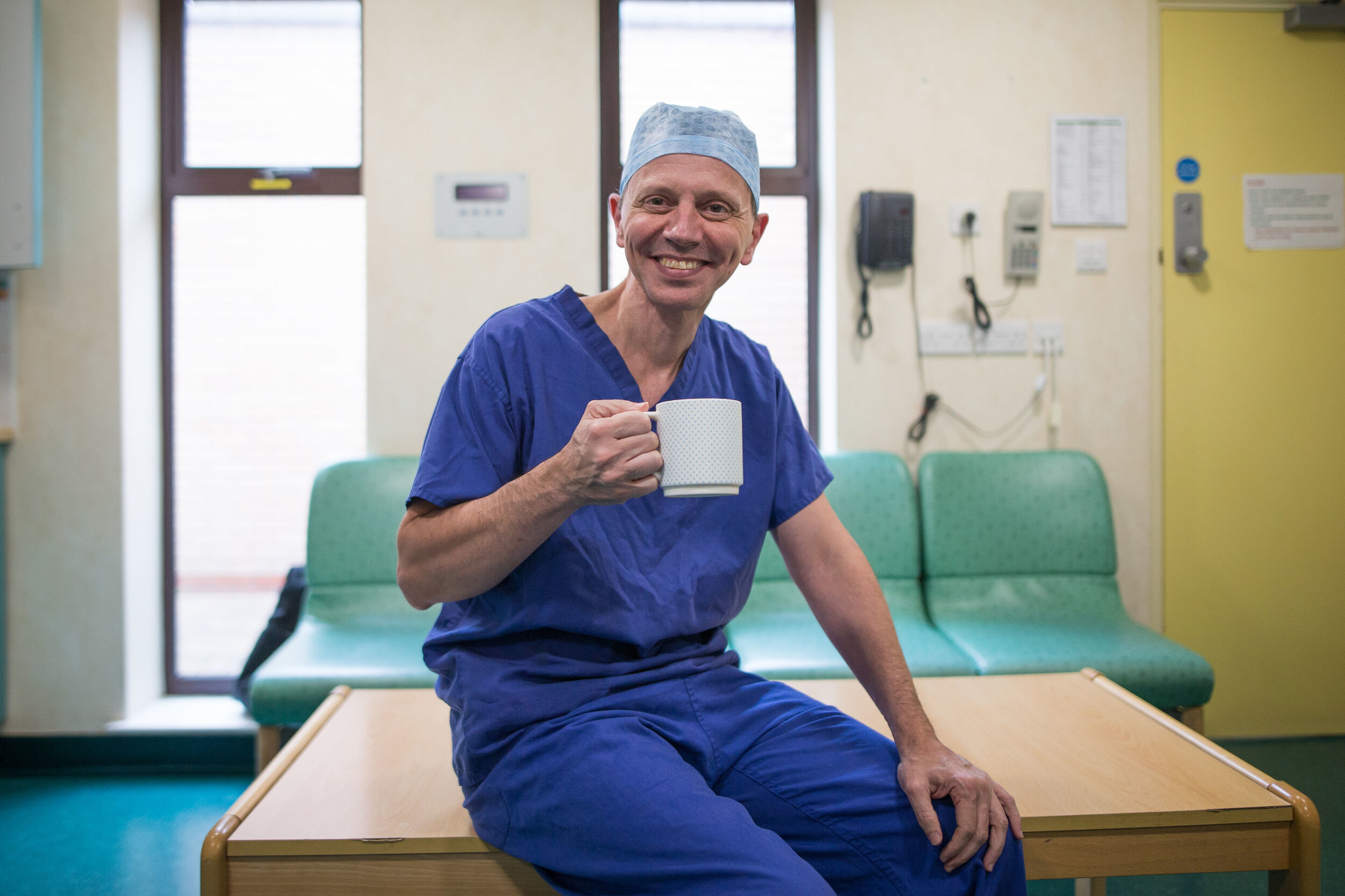
Carlos Heras-Palou, 53, performing hand surgery at Derby Nuffield Hospital. Mr Heras-Palou, an orthopaedic specialist surgeon, may have had his career saved by a new drug called 'Patisiran'. The rare disease, hereditary transthyretin-mediated amyloidosis (hATTR amyloidosis), progressed and destroyed the nerves in his hands, rendering them useless. However after an 18 month course of Patisiran the condition has halted and reversed.
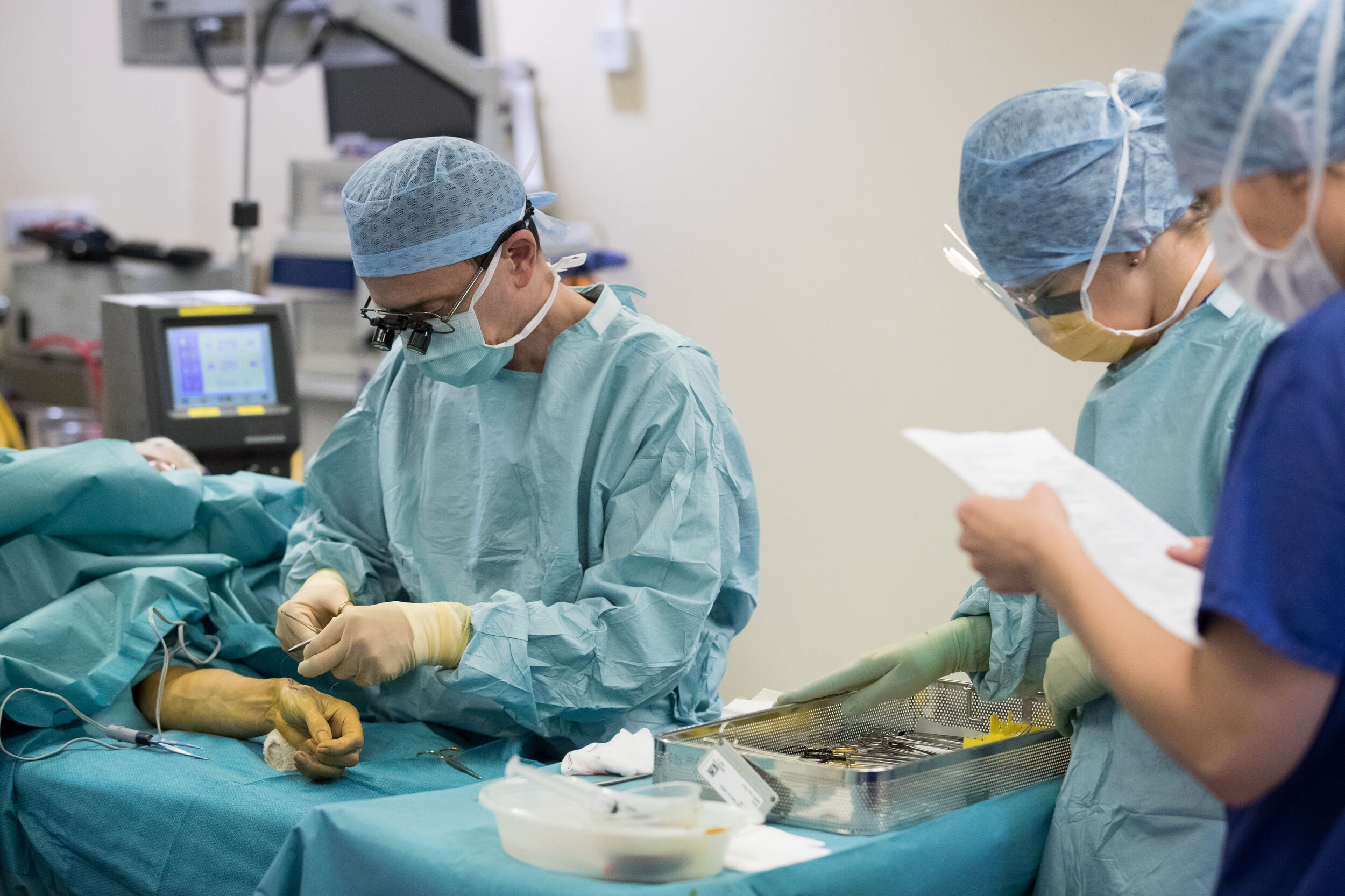
Carlos Heras-Palou, 53, performing hand surgery at Derby Nuffield Hospital. Mr Heras-Palou, an orthopaedic specialist surgeon, may have had his career saved by a new drug called 'Patisiran'. The rare disease, hereditary transthyretin-mediated amyloidosis (hATTR amyloidosis), progressed and destroyed the nerves in his hands, rendering them useless. However after an 18 month course of Patisiran the condition has halted and reversed.









Carlos Heras-Palou, 53, performing hand surgery at Derby Nuffield Hospital. Mr Heras-Palou, an orthopaedic specialist surgeon, may have had his career saved by a new drug called 'Patisiran'. The rare disease, hereditary transthyretin-mediated amyloidosis (hATTR amyloidosis), progressed and destroyed the nerves in his hands, rendering them useless. However after an 18 month course of Patisiran the condition has halted and reversed.
Carlos Heras-Palou, 53, performing hand surgery at Derby Nuffield Hospital. Mr Heras-Palou, an orthopaedic specialist surgeon, may have had his career saved by a new drug called 'Patisiran'. The rare disease, hereditary transthyretin-mediated amyloidosis (hATTR amyloidosis), progressed and destroyed the nerves in his hands, rendering them useless. However after an 18 month course of Patisiran the condition has halted and reversed.
Carlos Heras-Palou, 53, performing hand surgery at Derby Nuffield Hospital. Mr Heras-Palou, an orthopaedic specialist surgeon, may have had his career saved by a new drug called 'Patisiran'. The rare disease, hereditary transthyretin-mediated amyloidosis (hATTR amyloidosis), progressed and destroyed the nerves in his hands, rendering them useless. However after an 18 month course of Patisiran the condition has halted and reversed.
Carlos Heras-Palou, 53, performing hand surgery at Derby Nuffield Hospital. Mr Heras-Palou, an orthopaedic specialist surgeon, may have had his career saved by a new drug called 'Patisiran'. The rare disease, hereditary transthyretin-mediated amyloidosis (hATTR amyloidosis), progressed and destroyed the nerves in his hands, rendering them useless. However after an 18 month course of Patisiran the condition has halted and reversed.
Carlos Heras-Palou, 53, performing hand surgery at Derby Nuffield Hospital. Mr Heras-Palou, an orthopaedic specialist surgeon, may have had his career saved by a new drug called 'Patisiran'. The rare disease, hereditary transthyretin-mediated amyloidosis (hATTR amyloidosis), progressed and destroyed the nerves in his hands, rendering them useless. However after an 18 month course of Patisiran the condition has halted and reversed.
Carlos Heras-Palou, 53, performing hand surgery at Derby Nuffield Hospital. Mr Heras-Palou, an orthopaedic specialist surgeon, may have had his career saved by a new drug called 'Patisiran'. The rare disease, hereditary transthyretin-mediated amyloidosis (hATTR amyloidosis), progressed and destroyed the nerves in his hands, rendering them useless. However after an 18 month course of Patisiran the condition has halted and reversed.
Carlos Heras-Palou, 53, performing hand surgery at Derby Nuffield Hospital. Mr Heras-Palou, an orthopaedic specialist surgeon, may have had his career saved by a new drug called 'Patisiran'. The rare disease, hereditary transthyretin-mediated amyloidosis (hATTR amyloidosis), progressed and destroyed the nerves in his hands, rendering them useless. However after an 18 month course of Patisiran the condition has halted and reversed.
Carlos Heras-Palou, 53, performing hand surgery at Derby Nuffield Hospital. Mr Heras-Palou, an orthopaedic specialist surgeon, may have had his career saved by a new drug called 'Patisiran'. The rare disease, hereditary transthyretin-mediated amyloidosis (hATTR amyloidosis), progressed and destroyed the nerves in his hands, rendering them useless. However after an 18 month course of Patisiran the condition has halted and reversed.
Carlos Heras-Palou, 53, performing hand surgery at Derby Nuffield Hospital. Mr Heras-Palou, an orthopaedic specialist surgeon, may have had his career saved by a new drug called 'Patisiran'. The rare disease, hereditary transthyretin-mediated amyloidosis (hATTR amyloidosis), progressed and destroyed the nerves in his hands, rendering them useless. However after an 18 month course of Patisiran the condition has halted and reversed.